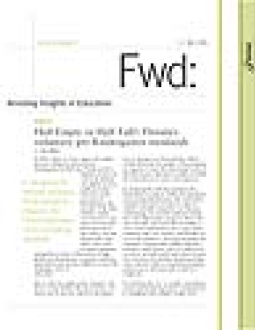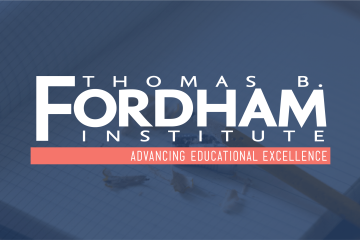In 2002, when its voters approved a ballot measure calling for universal pre-Kindergarten by 2005-06, Florida joined a handful of states in which all children are eligible for free, publicly funded education in the year prior to Kindergarten. The passage of the referendum was cause for great optimism among those aware of the power of high-quality pre-K programs to prepare children, particularly low-income children, to meet the challenges of K-12 education. But as with any public policy initiative, the devil is in the details. In designing the half-day Voluntary Pre-Kindergarten program (VPK), the Florida legislature faced competing demands. How did they balance the trade-offs? Amy Wilkins of the Education Trust lays it out in Fordham's latest Fwd: Arresting Insights in Education.
Policy Priority:
Topics:




